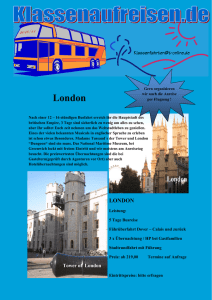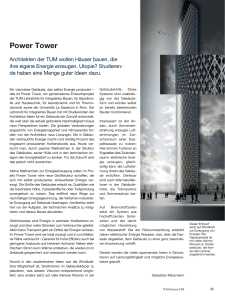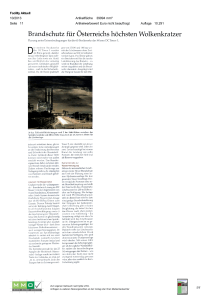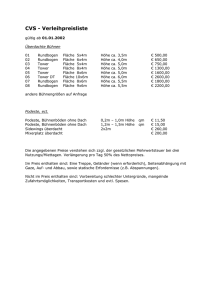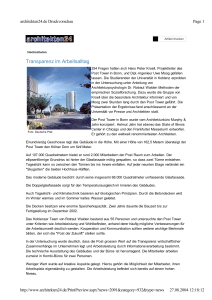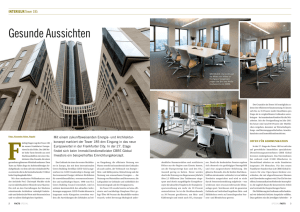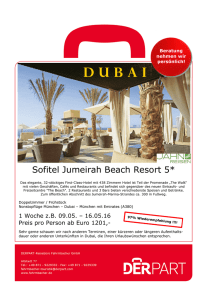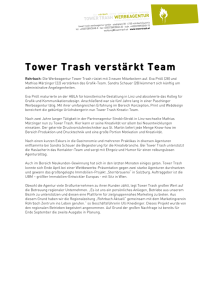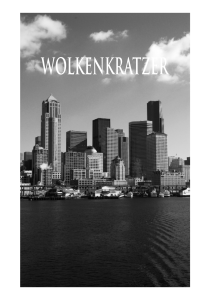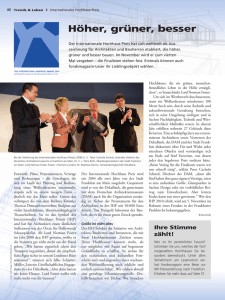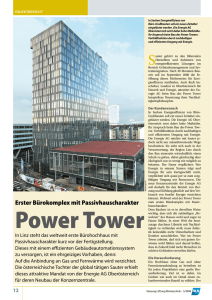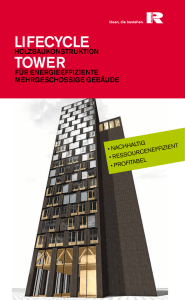Untitled - dxb.lab
Werbung
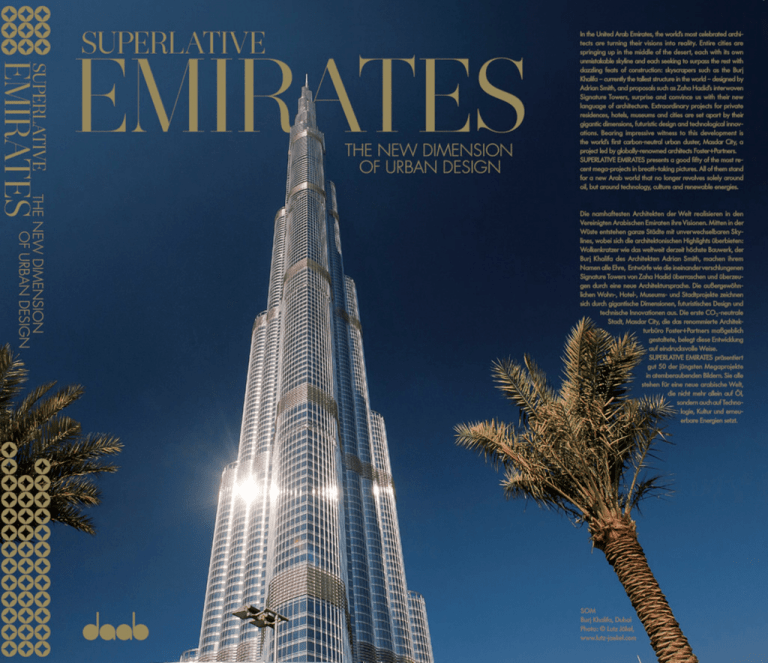
Superlative emirates SUPERLATIVE © 2011 DAAB MEDIA GMBH All rights reserved. No part of this publication may be reproduced or transmitted in any form or by any means, electronic or mechanical, including photocopy, recording or any information storage and retrieval system, without permission in writing from the copyright owner(s). Published and distributed worldwide by DAAB MEDIA GMBH Scheidtweilerstrasse 69 50933 Cologne/Germany fon: + 49 221 690 48 210 fax: + 49 221 690 48 229 www.daab-media.com EMIRATES THE NEW DIMENSION OF URBAN DESIGN Join our community www.edaab.com and present your work to a worldwide audience Edited by Caroline Klein Concept by Ralf Daab Corporate Design by Meiré und Meiré, Cologne Layout by Sonia Mion, Nicola Iannibello, Milan www.ventizeronove.it Copy Editors: Caroline Klein, Milan; Christiane Blass, Cologne; Yvonne Courtney, London German translations by Norma Kessler, Aschaffenburg; Rainer Remmel, Berlin; Michael Wachholz, Berlin English translation by Gaines Translations, Frankfurt/Main Copy proofreading by Michael Konze, Cologne; First Edition Translations Ltd, Cambridge Lithography by fgv Group, Milan www.fgvgrafica.it Printed in Italy www.graficheflaminia.com ISBN 978-3-942597-08-1 Edited by CAROLINE KLEIN Dxb-laB Code Business Tower / Dubai ~ dxb-lab is an award-winning architecture practice based in Dubai, established in 2000 by Khalid Al Najjar and Shahab Lutfi. After studying in Europe and the US, the Emirati partners have succeeded in establishing a local firm with a distinguished reputation across the Middle East. Through an applied combination of design principles, architectural innovation and modern technologies, dxb-lab relishes its Arabic roots and respects local customs and traditions in the built environment. Projects range from private residences, commercial and office buildings to cultural and public projects, hotel resorts and masterplans. ~ dxb-lab ist ein in Dubai angesiedeltes Architekturbüro, das im Jahr 2000 von Khalid Al Najjar und Shahab Lutfi gegründet und bereits mit mehreren Preisen ausgezeichnet wurde. Nach ihrem Studium in Europa und den USA gelang es den beiden Partnern, vor Ort ein Büro aufzubauen, das im Nahen Osten großes Ansehen genießt. Durch eine besondere Kombination von Gestaltungsprinzipien, innovativer Architektur und modernen Technologien bringt dxb-lab seine arabischen Wurzeln ein und achtet die örtlichen Bräuche und Traditionen im gebauten Umfeld. Die Projekte reichen von privaten Wohnhäusern über Gewerbeund Bürobauten bis zu kulturellen und öffentlichen Projekten, Hotel­ anlagen und städtebaulichen Masterplänen. 60 61 ~ Code BUSINESS Tower 2010 Middle East Architect Award – Best Commercial Building of the Year Storeys: 14 Completed: 2010 The black and white Code Tower makes a distinctive contribution to a city saturated with high-rises that try to be different yet conversely look the same. Such a metropolitan condition deserves a different contribution to a new city like Dubai, which seeks to define its new character through its skyline. A solemn and indifferent building with plenty of style and aura. This tower does not try to imitate its otherwise chaotic surroundings; rather, it’s as though the city is inspired by its presence. Open plan without columns, the floor weight is carried to the ground by the two side load-bearing walls, which define the tower’s rising form. Cutout patterns on the façade give the tower an abstract statement in a predominantly figurative city. The elevations are organised like a plan. The same two-dimensional planes also become a ceiling for the entrance lobby that floats over the exposed concrete lobby floor. A glass façade defines the third elevation of the building. The black granite exterior on the fourth façade and its direct expression in the interior effectively turns the building inside out. The core of the tower is also dressed in black granite. A black hole and a public space – this is where the public vertical circulation is gathered. Visiting the building is an experience of linear perspectives and extended visual lines out towards the sky and horizon. This structure is a coordinated geometry that ties spaces and materials together. A grid-inspired building, the endlessness is reflected by the long corridors for some of the tower’s offices; passages of space and movement. The panels are customised with visible joints to give a special scale and make the geometric visual visible at all times. This project has created a new paradigm of 21st -century architecture for Dubai – localised, but minus any applied theme and of a scale that feels more like a neighbourhood urban building than an anonymous, generic city tower. [George Katodrytis] 62 Der schwarz-weiße Code Tower bringt sich erfrischend anders in eine Stadt ein, in deren Silhouette es bereits viele Wolkenkratzer gibt, die alle anders sein wollen, aber in gewisser Weise doch alle gleich aussehen. Um solche Uniformität zu vermeiden – zumal in einer neuen Stadt wie Dubai, die versucht, ihren Charakter über die Skyline zu definieren – bedarf es eines ganz eigenen Beitrags. Dementsprechend ist der Code Tower ein ernstes und stilles Gebäude mit Stil und Aura. Dieser Turm versucht nicht, sein eher chaotisches Umfeld zu imitieren; vielmehr wirkt die Stadt durch seine Präsenz inspiriert. Die Grundrisse sind offen und stützenfrei, das Gewicht der Decken ruht auf den beiden tragenden Seitenwänden, die die hoch aufragende Form des Turms definieren. Die ausgeschnittenen Elemente geben der Fassade eine abstrakte Wirkung in einer Stadt mit eher figurativen Gestaltungsmustern. Die Ansichten sind zweidimensional als Ebenen gestaltet, und diese Ebenen werden zur Decke in der Eingangshalle, die über dem Sichtbetonboden der Halle schwebt. Eine Glasfassade bildet die dritte Ansicht des Gebäudes. Der schwarze Granit der vierten Fassade und dessen Entsprechung im Inneren wenden wirkungsvoll das Innere nach außen. Der innere Kern des Turmes ist ebenfalls mit schwarzem Granit verkleidet. Ein schwarzes Loch und ein öffentlicher Raum – hier sind die vertikalen Zugangsmöglichkeiten zusammengefasst. Das Gebäude setzt auf das Erleben linearer Perspektiven und erweiterter Blickbeziehungen zum Himmel und zum Horizont – eine koordinierte Geometrie, die Räume und Materialien miteinander verbindet. Ein von einem Grundraster inspiriertes Gebäude, dessen Endlosigkeit sich in den langen Bürogängen, Raum- und Bewegungskorridoren, widerspiegelt. Zwischen den Platten wurden bewusst sichtbare Fugen gelassen, um Individualität und Linienstruktur deutlich zu machen. Dieser Bau setzt neue Standards für die Architektur des 21. Jahrhunderts in Dubai – lokal verankert, ohne aufgesetztes Thema und in einem Maßstab, der es eher wie ein urbanes Gebäude aus der Nachbarschaft und nicht wie einen anonymen Standardstadtturm wirken lässt. [George Katodrytis] 63 64 65
